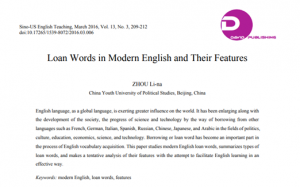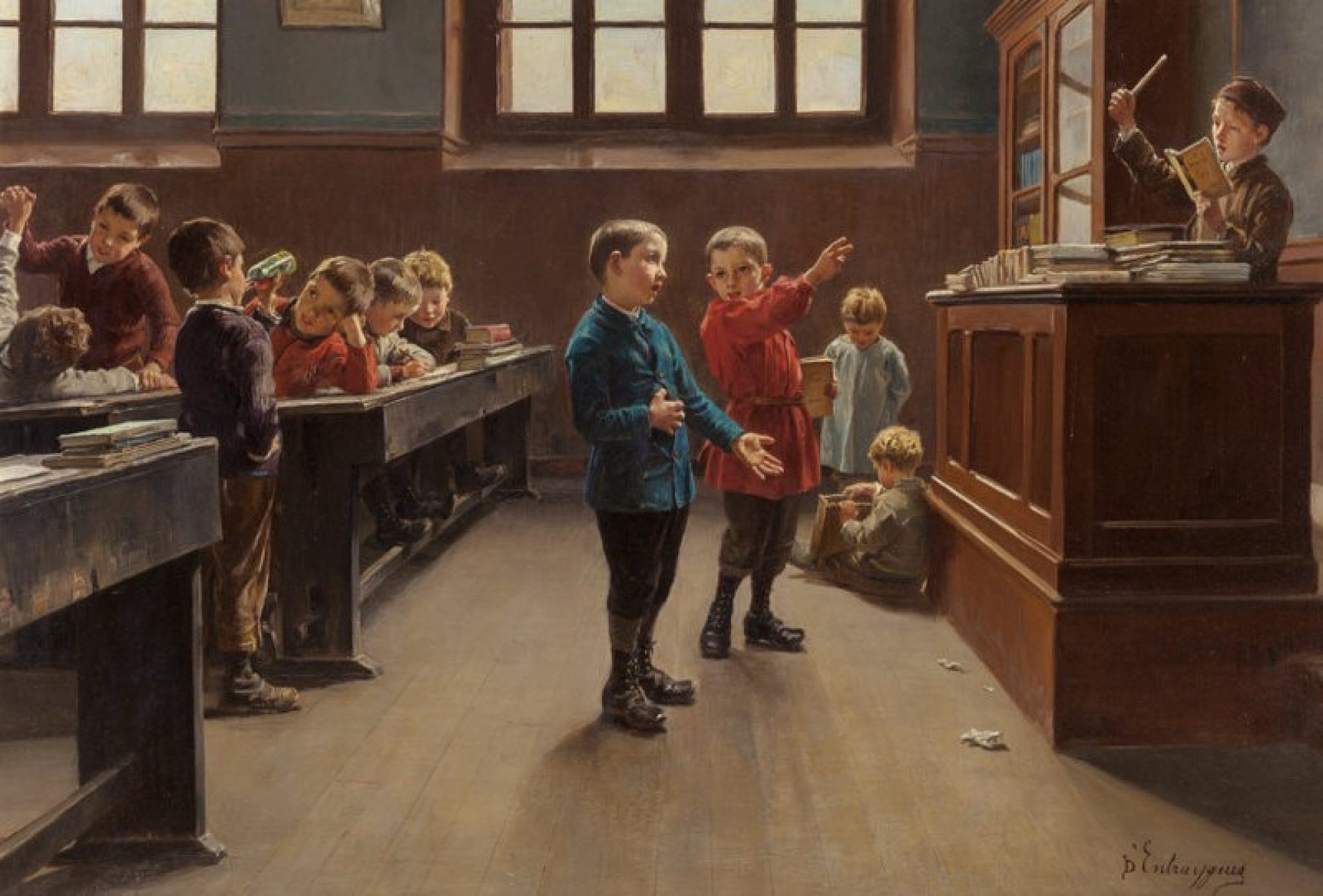PDF #34 – Zhou Li-na – Loan Words in Modern English and Their Features

Loan Words is a term adopted from a source language and incorporated into a recipient language without translation. With rapid process of globalization, interconnections among countries in areas of economics, politics, culture, science, and technology get strengthened.
As a result of this, English, as the world language, has borrowed a large number of words from foreign languages like French, German, Italian, Russian, Chinese Japanese, Greek, Spanish, Arabian, etc. According to surveys, the percentage of modern English words derived from each language is 29% from French, 29% from Latin, 26% from German, and 6% from Greek, the rest accounting for 6%. This paper probes into loan words in modern English with the aim to facilitate English learning in EFL (English as a Foreign Language).
A deeper understanding on loan words?
A loanword is distinguished from a calque (or loan translation), which is a word or phrase whose meaning or idiom is adopted from another language by word-for-word translation into existing words or word-forming roots of the recipient language.
Examples of loanwords in the English language include café (from French café, which literally means “coffee”), bazaar (from Persian bāzār, which means “market”), and kindergarten (from German Kindergarten, which literally means “children’s garden”).
The word calque is a loanword from the French noun calque (“tracing; imitation; close copy”); while the word loanword and the phrase loan translation are calques of the German nouns Lehnwort and Lehnübersetzung.
Loans of multi-word phrases, such as the English use of the French term déjà vu, are known as adoptions, adaptations, or lexical borrowings.
Strictly speaking, the term loanword conflicts with the ordinary meaning of loan in that something is taken from the donor language without it being something that is possible to return.
The terms substrate and superstrate are often used when two languages interact. However, the meaning of these terms is reasonably well-defined only in second language acquisition or language replacement events, when the native speakers of a certain source language (the substrate) are somehow compelled to abandon it for another target language (the superstrate)
Loan Words in Modern English
English has gone through many periods in which large numbers of words from a particular language were borrowed. These periods coincide with times of major cultural contact between English speakers and those speaking other languages. The waves of borrowing during periods of especially strong cultural contacts are not sharply delimited, and can overlap. For example, the Norse influence on English began already in the 8th century A.D. and continued strongly well after the Norman Conquest brought a large influx of Norman French to the language.
It is part of the cultural history of English speakers that they have always adopted loanwords from the languages of whatever cultures they have come in contact with. There have been few periods when borrowing became unfashionable, and there has never been a national academy in Britain, the U.S., or other English-speaking countries to attempt to restrict new loanwords, as there has been in many continental European countries.
After reading “Loan Words in Modern English” you can check important issues for ESL teachers on the section PDFs.
